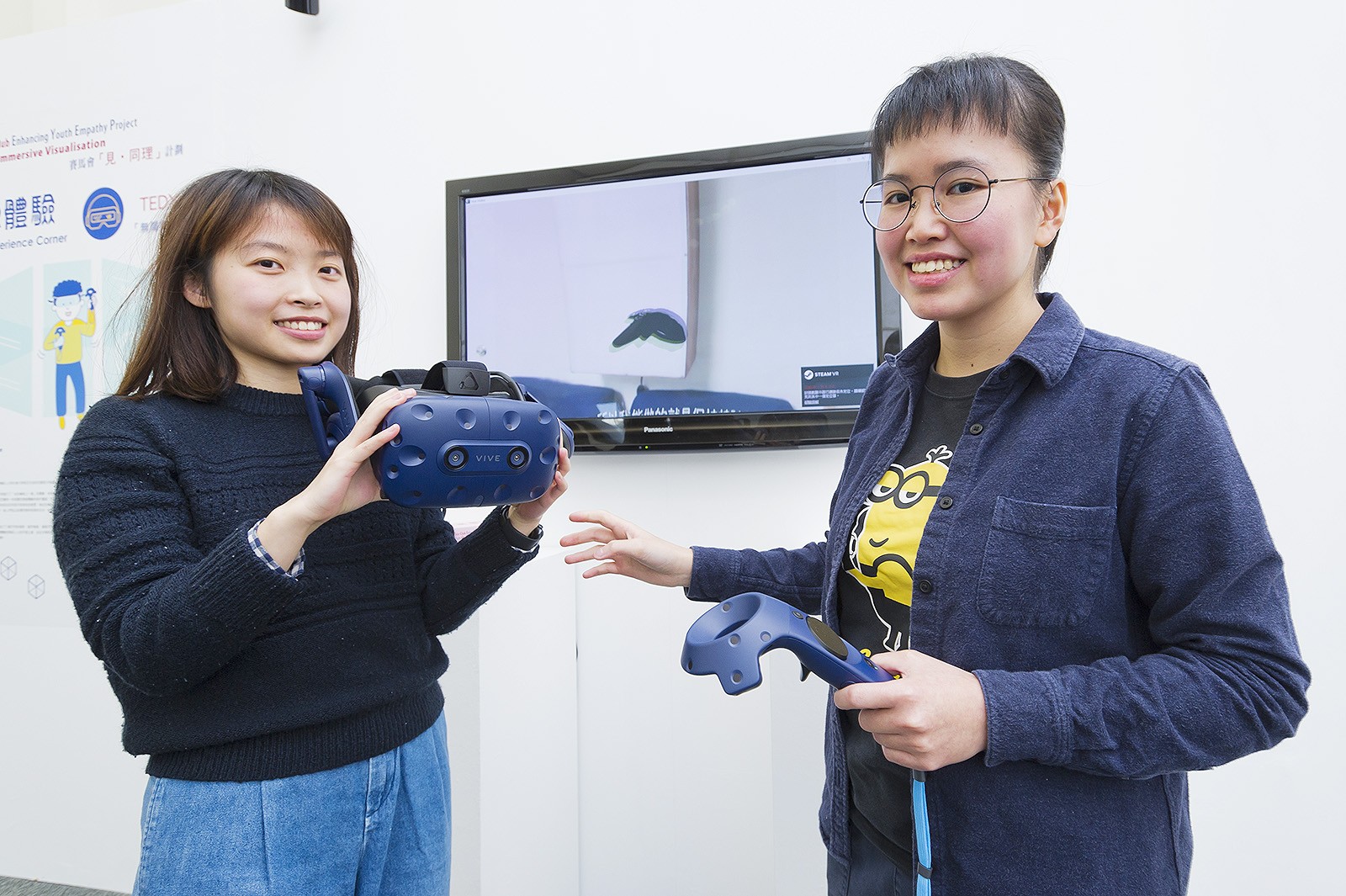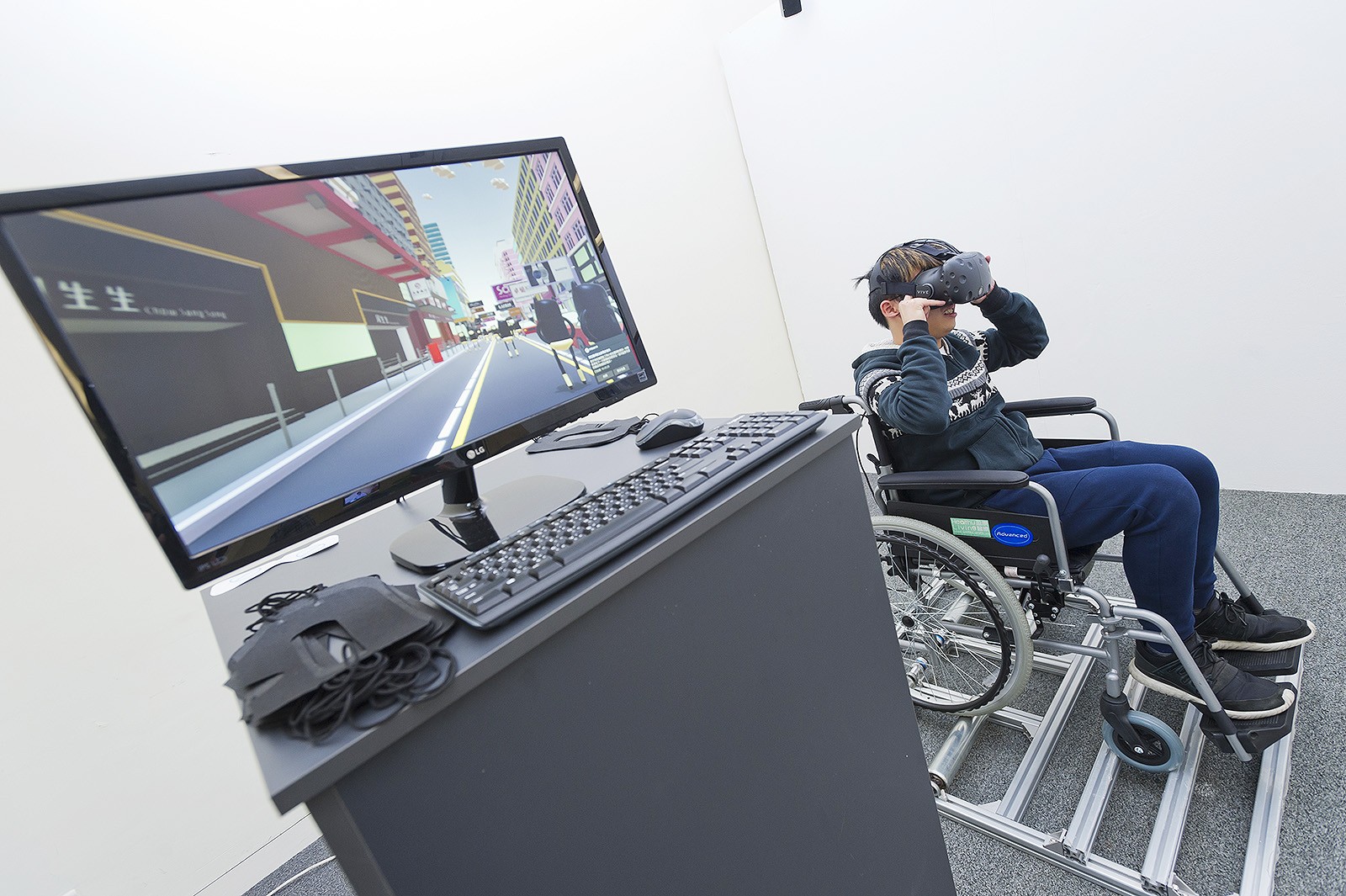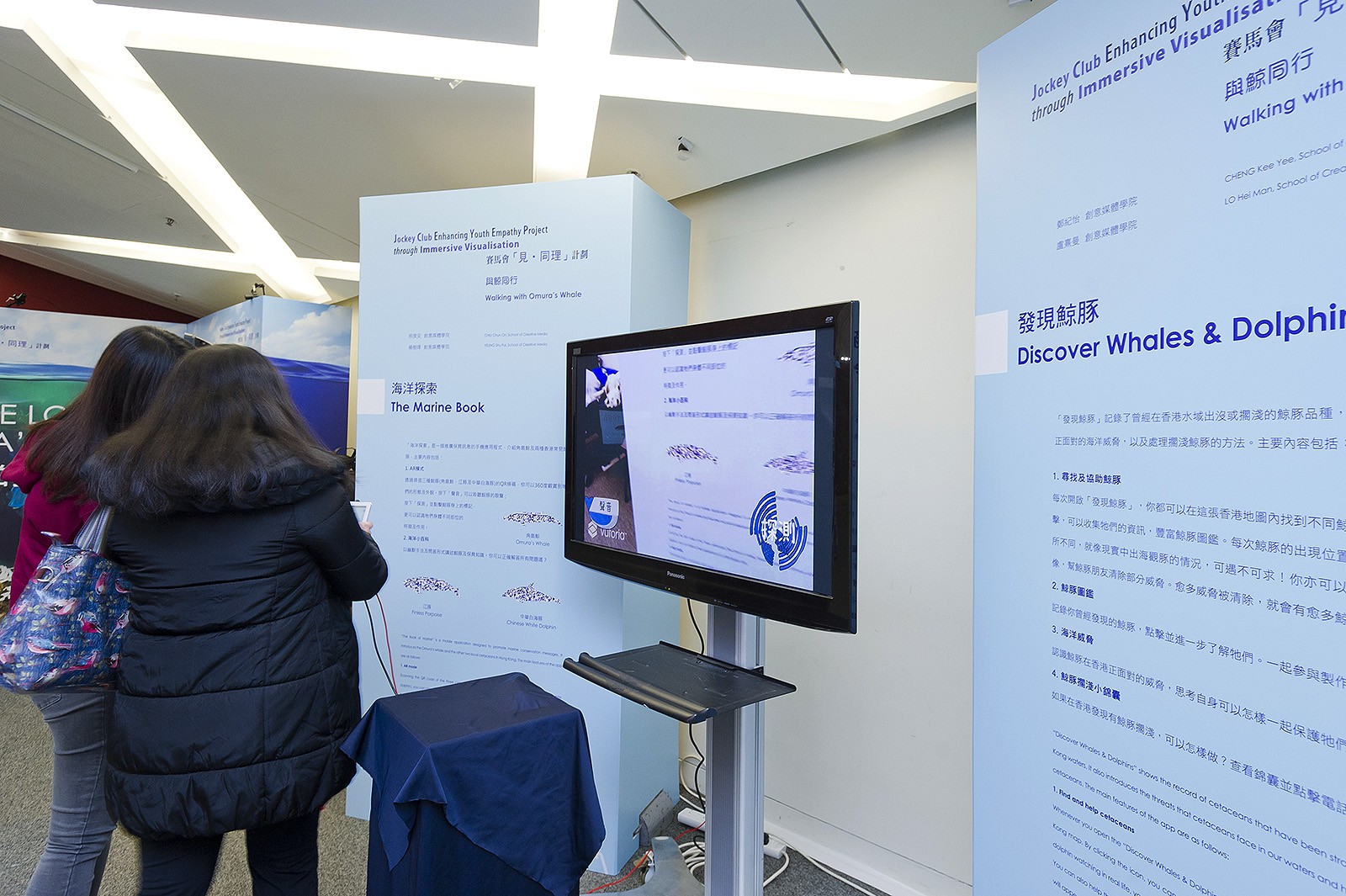
The Jockey Club Enhancing Youth Empathy Project through Immersive Visualisation (the Project), organised by City University of Hong Kong (CityU) and funded by The Hong Kong Jockey Club Charities Trust, has launched the “TEDY x WOW Showcase” from 19 to 28 January.
The exhibition showcases innovative student work that helps the public understand the positive impact brought about by the Project for those in need and for nature conservation.
More than 10 works created by students from two of the programmes under the Project, TEDY (Technologies for the Elderly and Disabled people by Youths) and WOW (Walking with Omura’s Whale Programme), are shown.
The multimedia works and custom-designed auxiliary devices are presented under four themes, namely “Play without Boundaries,” “Gerontechnology,” “The Future of Wheelchairs,” and “VR (virtual reality) Experience Corner”.
TEDY aims at cultivating a stronger sense of social responsibility and empathic understanding among students for the elderly and people living with disabilities. It encourages students to use technologies to create social innovations.
One of the TEDY works is a documentary titled See without Seeing that uses virtual reality technology to depict the journey of Mr Lo, a person with serious vision impairment, to the US for treatment for an undiagnosed disease that had bothered him for 20 years.
Chan Cheuk-sze and Chow Hiu-lam, producers on the documentary and Year 4 students at CityU’s School of Creative Media, said the film chronicled how Mr Lo sought treatment in St Louis in the US and detailed his daily life with his mother. The producers said Mr Lo had been suffering in a way that other people could barely withstand.
By using 360-degree panoramic photography technology, they hoped the film could present the reality of life for people living with a disability so that the audience could feel greater empathy with Mr Lo’s different emotions and better understand some of the challenges that people with disabilities can face in daily life.
TEDY also presents other works such as mobile games for people with impaired vision. These games include tic-tac-toe and Jungle (Dou Shou Qi), sensor gloves that seniors can use to exercise their hand muscles, brain exercises and interactive games for people with dementia, rehabilitation glasses for mobility problems associated with people who have Parkinson’s disease, and sticks with multiple functions.
WOW, another programme under the Project, will present the Omura’s whale and other marine lives using a mix of virtual and augmented reality technologies to arouse visitors’ concerns about nature conservation. Four works developed by CityU students over the past two years are being showcased through motion graphics, VR games and mobile apps.
The exhibition is now on show at Room M9001, 9/F, Run Run Shaw Creative Media Centre at CityU.
With more than HK$15 million in funding from The Hong Kong Jockey Club Charities Trust, CityU launched the Project in January 2017. It comprises three programmes, namely COSI (Companions of Social Inclusion), TEDY and WOW, aiming at nurturing students’ empathy for nature and the environment, the elderly and disabled, and ethnic minority groups. By utilising the University’s strengths in immersive visualisation technology, the Project encourages young people to develop their skills through “perspective-taking” and “role-taking” and create innovative solutions to help different groups to meet their challenges and problems.







